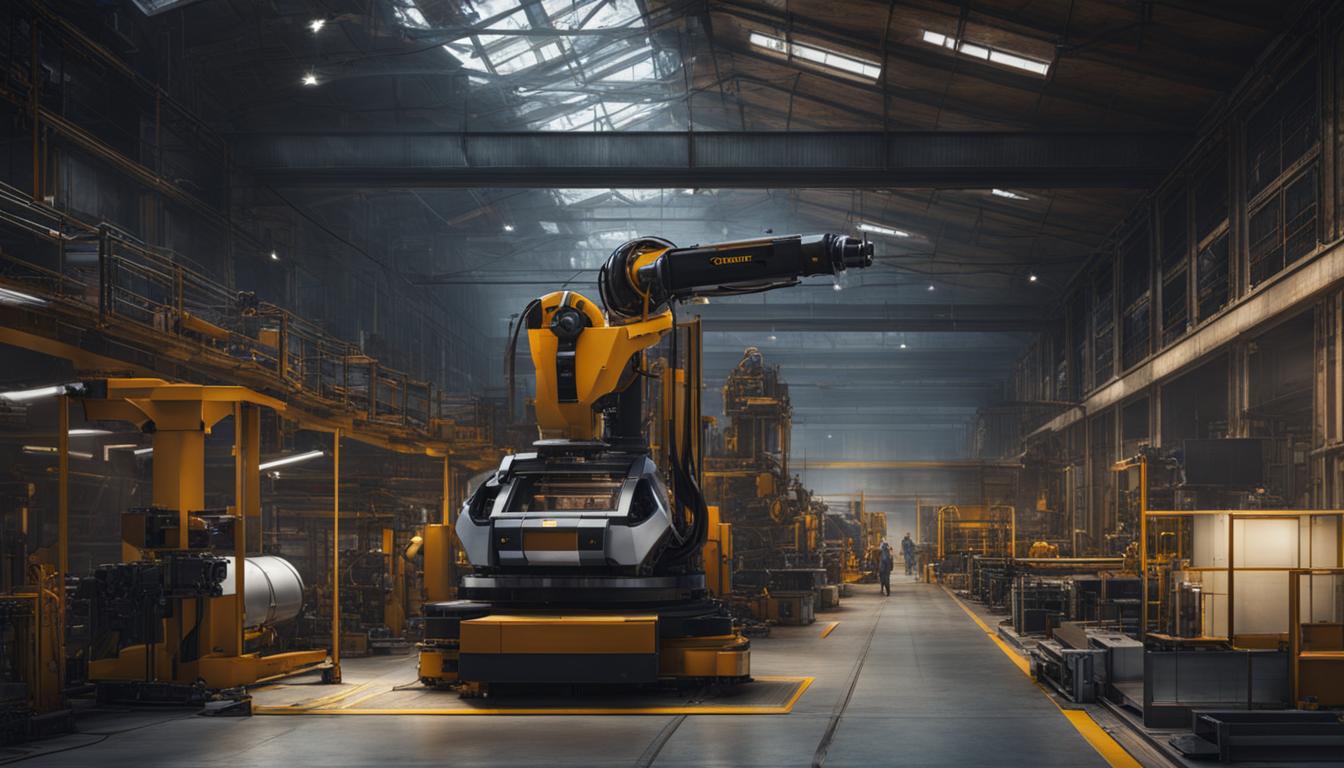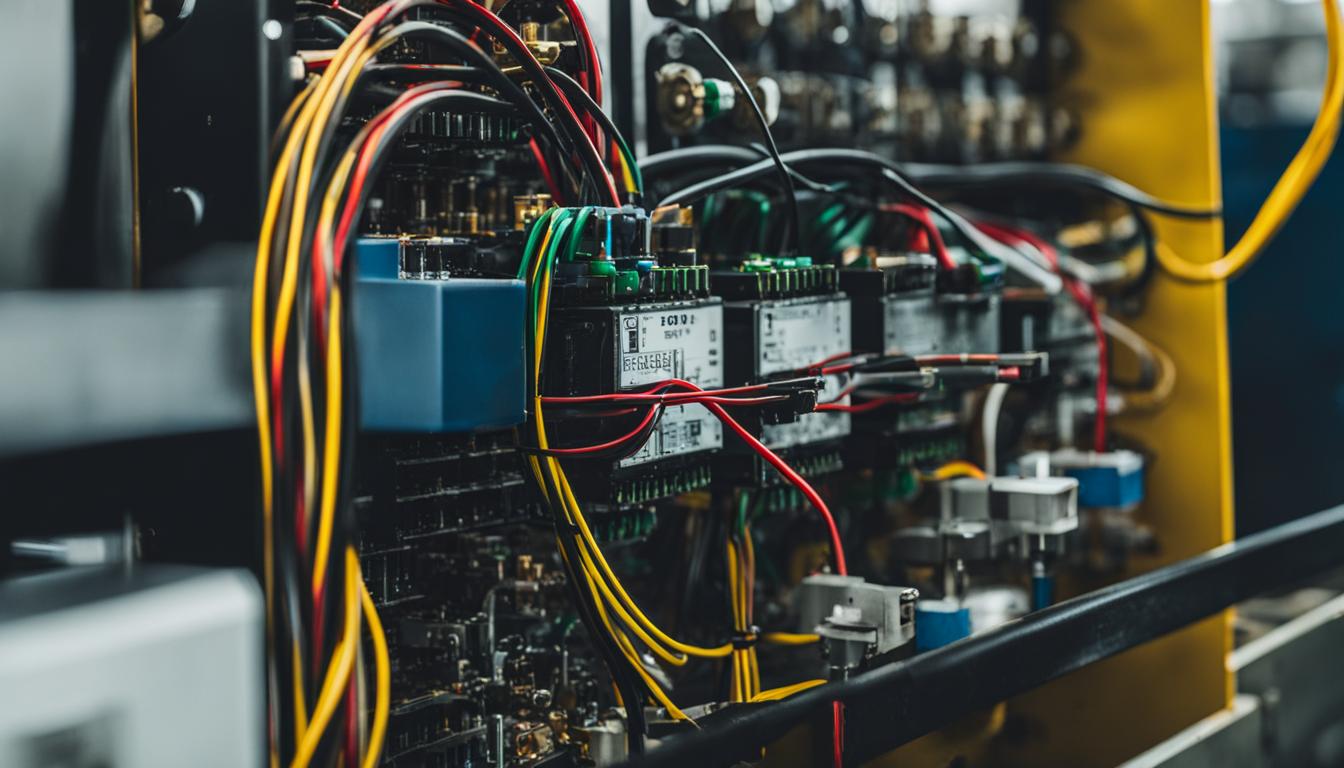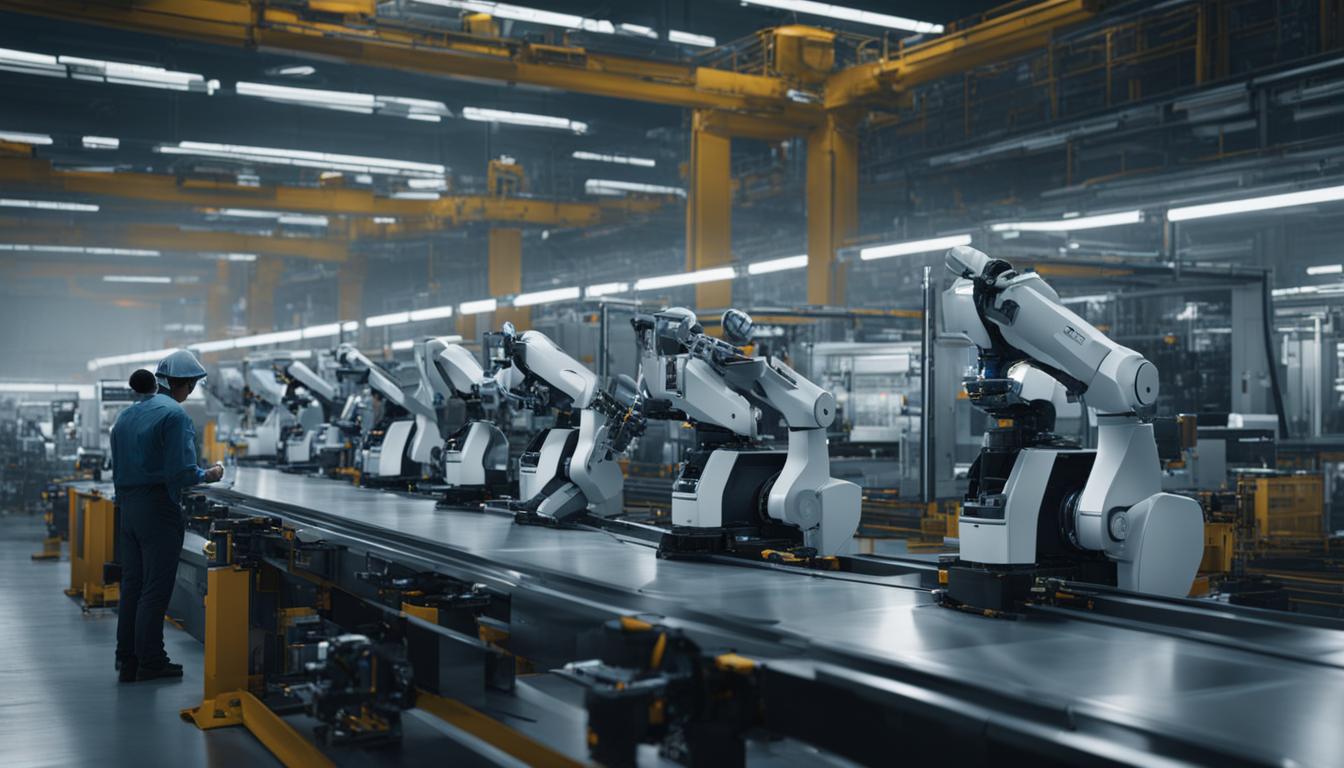Welcome to our article on quality control in machining. In the CNC machining process, ensuring high-quality products is of utmost importance. To achieve this, various techniques and standards are implemented to maintain precision, efficiency, and customer satisfaction.
One crucial factor to consider when selecting a machine shop is ISO 9001 certification. This certification ensures that the machine shop follows strict quality control measures. Additionally, the type of CNC machine used, such as 2-axis, 3-axis, 4-axis, and 5-axis machines, can impact the quality of the machined parts.
The expertise of CNC machine operators and the presence of a quality management system in the machine shop are also crucial considerations. Regular inspections, including operator inspections, in-process probing, and quality control department inspections, help ensure that the machined parts conform to customer requirements.
Key Takeaways:
- Quality control is essential in CNC machining to ensure high-quality products.
- ISO 9001 certification plays a significant role in selecting a machine shop.
- The type of CNC machine used impacts the quality of the machined parts.
- The expertise of CNC machine operators and a quality management system are crucial for maintaining quality.
- Inspections at different stages help ensure conformity to customer requirements.
Importance of Quality Control in CNC Machining
Quality control plays a vital role in CNC machining, ensuring the production of high-quality and precise products. The importance of quality control in CNC machining extends beyond meeting customer requirements; it also impacts various aspects of the manufacturing process, including cost-efficiency, compliance, and reputation.
Precision in CNC Machining: Precision is critical in CNC machining as it ensures that the machined parts meet the correct specifications. By achieving precision, manufacturers can avoid safety hazards, product failures, and costly reworks. It also helps minimize material waste, leading to increased cost-efficiency and optimized resource utilization.
Compliance and Consistency: Maintaining compliance and consistency across different production batches is essential for a reliable supply chain and customer satisfaction. Through effective quality control practices, manufacturers can ensure that all products adhere to quality standards, reducing product variability and enhancing consistency across production cycles.
Minimizing Downtime: Effective quality control processes can minimize unplanned downtime in CNC machining. By regularly inspecting machines, predicting maintenance needs, and taking proactive measures, manufacturers can significantly reduce disruptions in production, optimize machine uptime, and enhance overall operational efficiency.
Reputation and Customer Satisfaction: Quality control directly impacts a company’s reputation and customer satisfaction in CNC machining. By consistently meeting client specifications and delivering high-quality products, manufacturers can build trust, foster customer loyalty, and enhance their reputation in the industry. Customer satisfaction is a key driver of long-term success and sustainability.

In summary, quality control is of utmost importance in CNC machining. It ensures precision, cost-efficiency, compliance, and consistency throughout the manufacturing process. By minimizing downtime, meeting customer specifications, and consistently delivering high-quality products, manufacturers can enhance their reputation and customer satisfaction, leading to long-term success in the industry.
Steps for Ensuring Quality Control in CNC Machining
In order to ensure quality control in CNC machining, we follow several important steps. Effective communication with customers is a crucial foundation for successful outcomes. By understanding their requirements and promptly addressing any queries, we can deliver products that meet their expectations.
Consistency is another key factor in maintaining high-quality products and enhancing the reputation of our company. Through standardized processes and meticulous attention to detail, we ensure that each product meets our strict quality standards.
Inspection plays a vital role during the machining process. By conducting regular inspections, we can identify any issues that may arise and make the necessary adjustments to improve product quality. This proactive approach helps us avoid potential defects and ensures that the final products meet the highest standards.
Effective compliance with industry regulations and standards is a fundamental aspect of quality control in CNC machining. We adhere to all relevant regulations and standards to guarantee the safety and performance of our products. This commitment to compliance allows us to avoid costly consequences and maintain our reputation as a reliable and trustworthy manufacturer.
Summary of Steps for Ensuring Quality Control in CNC Machining:
| Steps | Description |
|---|---|
| Effective Communication | Understand customer requirements and promptly address queries. |
| Consistency | Maintain standardized processes for consistent product quality. |
| Inspection | Conduct regular inspections to identify and resolve quality issues. |
| Compliance | Adhere to industry regulations and standards to ensure product safety and performance. |
By following these steps, we ensure quality control throughout the CNC machining process, delivering products that meet the highest standards of quality and reliability.
Benefits of Quality Control in CNC Machining
Quality control in CNC machining provides numerous advantages that contribute to the success and reputation of a company. By implementing effective quality control measures, we can ensure improved product quality, cost savings, efficient material usage, consistent product performance, minimized downtime, enhanced reputation, and increased customer satisfaction.
One of the primary benefits of quality control in CNC machining is the improved product quality. By closely monitoring the machining process and applying rigorous inspection techniques, we can identify and rectify any deviations or defects early on, resulting in higher-quality products that meet or exceed customer expectations.
Cost savings are another significant advantage of quality control in CNC machining. Through efficient material usage and reduced material waste, we can optimize resource allocation and minimize unnecessary expenses. Effective quality control measures help eliminate errors and rework, reducing production costs and maximizing overall profitability.
Efficient material usage is closely linked to cost savings and environmental sustainability. By closely monitoring and controlling the machining process, we can minimize material waste and ensure that resources are utilized effectively. This not only benefits the company’s bottom line but also contributes to a more sustainable approach to manufacturing.
Consistent product performance is important for maintaining customer satisfaction and establishing a reliable supply chain. Quality control measures help ensure that each product meets the same high standards, resulting in reliable and consistent performance. This consistency builds trust with customers and fosters long-term relationships.
Minimizing downtime through proactive maintenance is another significant benefit of quality control in CNC machining. By regularly inspecting equipment and identifying potential issues before they arise, we can prevent unplanned downtime and maximize operational efficiency. This leads to increased productivity and reduced production delays, resulting in significant cost savings and improved customer satisfaction.
Quality control in CNC machining also has a direct impact on a company’s reputation. By consistently delivering high-quality products, we can enhance our reputation as a reliable and trusted manufacturer. This reputation not only attracts new customers but also strengthens relationships with existing ones, leading to increased customer loyalty and repeat business.
Ultimately, the main goal of quality control in CNC machining is to achieve customer satisfaction. By focusing on producing high-quality products, we can meet and exceed customer expectations, leading to enhanced customer satisfaction and loyalty. Satisfied customers not only become repeat customers but also act as ambassadors for our brand, spreading positive word-of-mouth and attracting new business.

| Benefits of Quality Control in CNC Machining |
|---|
| Improved product quality |
| Cost savings |
| Efficient material usage |
| Consistent product performance |
| Minimized downtime |
| Enhanced reputation |
| Customer satisfaction |
Conclusion
Quality control plays a critical role in CNC machining, ensuring that companies deliver high-quality products that meet customer requirements. By implementing effective quality control measures, such as precision, cost-efficiency, consistency, and compliance, companies can enhance their reputation and maintain a competitive edge in the industry.
One of the key benefits of quality control in CNC machining is the ability to minimize downtime by proactively identifying and addressing issues during the machining process. This leads to increased operational efficiency and reduces disruptions in production. Quality control also enables companies to achieve cost savings through efficient material usage and reduced waste.
Furthermore, quality control in CNC machining helps to build a reliable supply chain by ensuring consistent product performance, thereby enhancing customer satisfaction. By prioritizing quality control, companies can establish a positive reputation and gain the trust of their customers.
In conclusion, the importance of quality control in CNC machining cannot be overstated. Its benefits, including improved product quality, cost savings, minimized downtime, and enhanced reputation, are crucial for companies looking to succeed in the competitive market. By maintaining a strong focus on quality control, companies can achieve operational excellence and deliver superior products that meet customer expectations.
FAQ
What is quality control in machining?
Quality control in machining refers to the processes and techniques implemented to ensure that machined parts and products meet specific quality standards. It involves various inspections, measurements, and tests to maintain precision, efficiency, and customer satisfaction.
Why is quality control important in CNC machining?
Quality control is crucial in CNC machining to achieve precision, meet specifications, ensure proper functioning, and avoid safety hazards or product failures. It helps minimize material waste, increase cost efficiency, maintain compliance and consistency, and enhance customer satisfaction and the company’s reputation.
What steps can be taken to ensure quality control in CNC machining?
To ensure quality control in CNC machining, effective communication with customers, consistency in the manufacturing process, inspections during the machining process, and compliance with industry regulations and standards should be followed.
What are the benefits of quality control in CNC machining?
Quality control in CNC machining offers several benefits, including improved product quality, customer satisfaction, cost savings through efficient material usage, consistent product performance, minimized downtime through proactive maintenance, enhanced reputation, and reliable supply chain management.
Why is quality control important for CNC machining?
Quality control is important for CNC machining as it ensures high-quality products, meets customer requirements, and enhances the company’s reputation. It plays a crucial role in achieving precision, cost efficiency, compliance, consistency, minimizing downtime, and optimizing operational efficiency.




